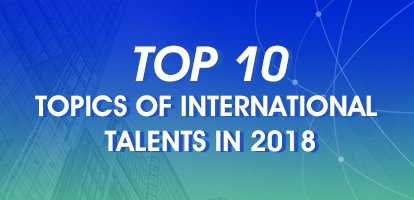Times of change and opportunity
The China journey of my family began in 1956 when my father, Janaki Ballabh, traveled from New Delhi to Beijing to work as a foreign expert with the Foreign Languages Press. He was later to be joined by my mother, Shayma Ballabh, who would become the first Hindi announcer at Radio Beijing.
I came to China for the first time in September 1977, as a 13-year-old, when my parents, who had returned to India in 1961, went back to Beijing in 1977. I got a chance to learn Chinese and also had the good fortune to study history at Peking University which helped me develop a deeper understanding of the Chinese nation and create a lifelong bond of love for the Chinese people and its culture.
For a young person coming from India it was indeed a great experience. China, like India, was a developing country and day-to-day life always reminded us that things were in short supply. I remember traveling from the Friendship Hotel to the Friendship Store to get basic necessities, a good 50-minute journey by bus. We needed coupons for everything, without which, even if you had money, you could not purchase anything. It was an economy based on tight rationing. And then we had the new policy of reform and opening-up put forward by Deng Xiaoping and China started showing the first signs of change. A lot of friends who have not been in China at that time do not really appreciate how much hard work went into the whole process of economic liberalization and how many doubts there were in the minds of friends of China that the country was going to become like any other Western nation and lose its identity in the whole process of economic development and globalization.
Fast forward to today, and China is now the second-largest economy in the world. China has been the growth engine of the world for the last three decades and has now become a center for artificial intelligence, big data and 5G, which are going to define the development of the global economy in the coming years. This is truly going to change the meaning of the world connectivity.
China in the last four decades has lifted 700 million people out of poverty which is one of the real miracles of economic transformation in the world. This has created a new market which is unparalleled in the world and that is why all big multinational companies look at China with a lot of hope.
Now it is India that has become the fastest growing major economy in the world, and it and China are the top two global growth engines.
The top leadership of both India and China are keen on developing a good relationship between the countries. This was quite evident from the informal summit between President Xi Jinping and Indian Prime Minister Narendra Modi in Wuhan, where the leaders discussed a lot of issues in a very informal setting.
With the warming of their relations, now is the time for both countries to break free of their "trust deficit" and work together for the shared future of more than 2.7 billion people.
Once we are able to do that, the issues that are left over by history can be easily discussed across the table with a give-and-take approach.
Today we see a lot of voices internationally which are against globalization and are against free trade. These voices are coming from countries that until recently were putting pressure on the two countries to open up and which have been the beneficiaries of the globalization process over the past half a century. When it is now our turn to have fast economic growth these voices are trying to change the rules of the game.
India and China should become champions of globalization and work together to create a new system that respects territorial integrity, sovereignty and noninterference in internal affairs but at the same time has zero tolerance toward terrorism, separatism and extremism.
We are in times of great change and opportunities. Connectivity between countries, physical, virtual and cultural, will play a great part in creating an environment of fast-paced economic sustainable growth which would lead to peace and tranquillity in the world. We need development which is sustainable and encourages green consumption and takes cognizance of the climate change challenges faced by the world. Development has to be broad-based, and the benefits of development in one country should help its neighbors and the world. We need to work hard to create a world which is interconnected and interdependent, which is a precursor for the peaceful, equitable and sustainable development of all humankind.
The author is executive director of Indian Chambers of Commerce and Industry's office in China. The author contributed this article to China Watch, a think tank powered by China Daily. The views do not necessarily reflect those of China Daily.


 Print
Print Top 10 topics of international talents in 2018
Top 10 topics of international talents in 2018 Policies to attract foreign talent
Policies to attract foreign talent


